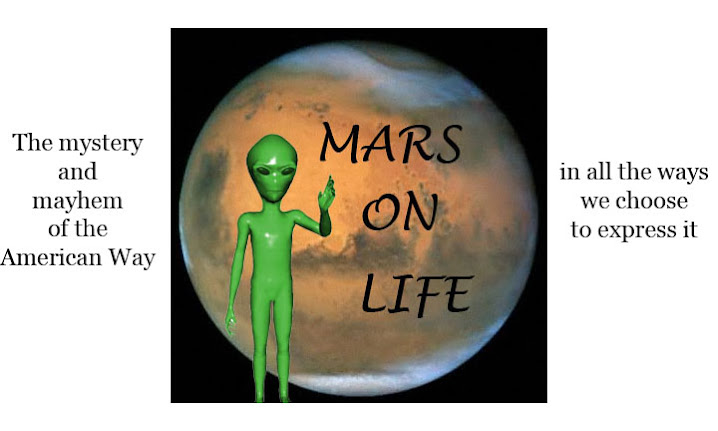
"You gotta have a gimmick," sings Mazeppa in Gypsy, as she instructs Louise--later Gypsy Rose Lee--how to become a burlesque star. In Mazeppa's case, a badly played trumpet was the gimmick. On America's Got Talent, now in its third season, gimmicks range from banal (off-key moppets, David Hasselhoff's tears) to manipulative (autism, patriotism) to freakish (nearly all impersonators, even if all they impersonate is women). In between there are heavily rouged child contortionists, Chippendale dancers turned singers, fumbling magicians, and the specter of Terry Fator.
Last year, Fator easily won the second season with his ventriloquistic impersonations. After landing the million-dollar prize, he landed a gig with the Mirage in Las Vegas that may ultimately be worth $100 million. That paycheck would make Mr. Fator the most successful talent-contest winner in the short history of successful American talent competitions, that is to say away from local Saturday morning TV and The Gong Show.
It is not to say that a talent show doesn't bring out a fair share of schlockiness; after all, a talent show is only as good as its most embarrassing and awkward auditioners. What holds true for American Idol holds true for America's Got Talent: Give me your huddled weirdoes, your tired tap dancers, your poor, penny-ante warblers, all yearning for a contract in the new American entertainment capital.
Every dog has its day, as the saying goes, so America's Got Talent attracts a motley assortment of performers, most of whom one would find required quotation marks. "Performers," the 20th-century way to indicate irony. Unlike American Idol, which requires only that a "performer" "sing," America's Got Talent makes it possible for the untalented to do nothing more than gape, if they so desire, or brilliantly sandbag themselves.
Lachrymose opera singer Neal Boyd was part of a hotly contested operatic grouping that also included a drag queen who sang a duet in both baritone and soprano. Mr. Boyd wasn't the only performer to be overcome with emotion; Spc. Daniel Jens got halfway through his number before forgetting his lyrics in a thicket of tears.
Tears and emotion are important--if underrated--talents unto themselves. Not everyone cries the same, even as the cause of the tears is universal. Of the 113 contestants in the Vegas semi-finals, only 40 will make it to the performance shows, a fact of which many are keenly aware. Their tears transcend performance anxiety and forced high notes; they are to a man convinced that this is their only and last chance. Whether this is a particularly American phenomenon is unclear, but even someone as professionally seasoned as sword-swallower Dan Meyer (the "Christian David Copperfield" per his Web site) voices it: Vegas or bust.
Because the prize involves a performance contract, the show is now heavily weighted towards people who have enough material, interest, and professionalism to carry a live show, which ruled out a man who broke bricks with his head and a poor-man's Criss Angel whose tricks went so horribly wrong that his delusion could only be all the greater: "No mistakes made whatsoever," he claimed, followed by an eerie smile.
This leaves singers, lip-synchers, impersonators, and magicians as those with the best shot at going the distance. Performers with a single trick, albeit a snappy one, like the Russian bar trio, can't sustain physically for the duration and yet are among the most talented, without quotation marks. Eleven-year-old Victoria Jacoby, who seems destined for Cirque du Soleil and was one of only a few acts that could claim true professionalism, was cut. One cannot also believe that showgoers would pay Vegas prices to see four-year-old Kaitlyn Maher lisp her way through an evening's worth of schmaltzy Top 40. That makes Miss Maher, barely out of training pants, a "curiousity" and an "irrealism"; America loves its moppets dearly but at last reckoning we're a far more sophisticated bunch than we were in the 1930s, when people crowded theatres to see Shirley Temple. Political oratory? Now that would be a nifty trick from a toddler and well worth paying the high Vegas ticket prices, especially if said oratory were also satirical.
Many performers admit that they enter the contest not expecting to win. They're after exposure, which means a chance to give up a mundane day job. Or homelessness, which is becoming an alarming featured trend. Exposure isn't the same as winning, and it also doesn't include what Holly Hardin was seeking. "I'm ready for the bright lights and the red carpet," Ms. Hardin twanged, making the contrast between Hollywood and the rural South even more "poignant" when she got cut in a round that featured two heavy-hitting African-American vocalists and was sent back to the dirt farm her statement implied.
Despite the popularity of talent shows, a good percentage of performers still fail to read the rule book. On the first page, right where it says that talent isn't a prerequisite for auditioning, it also says that some people will make the now-ubiquitous Vegas round simply for the purpose of providing what is known as "good television." What makes for good television is variable from show to show and dependent on the perceived sophistication of the viewer (generally none); there is presently a contestant on Project Runway with whose leggings-clad and wobbly posterior the editors are having more than their fair share of fun.
If America has anything, America's got mediocrity. This is to be expected. The acceptance of mediocrity is worse than the acceptance of utter lack of talent; it is what causes people to say, as did a departing singer, that "my lifelong dream has just come to an end." A bad end, it seems, along with a bad beginning, but necessary for the continuation of the American cultural sideshow and the dialectic of deserved fame.
Tuesday, August 5, 2008
America's Got Mediocrity
Labels:
America's Got Talent
Subscribe to:
Post Comments (Atom)









3 comments:
Though I haven't seen the show, and can't comment on it's contents, I do wonder why the contestants think this is their last and only chance. If they were truly hungry to be stars/successful/whatever, wouldn't this just be one of scores of "chances," or auditions?
I think I'm missing a lot by not watching the show. Maybe I should jump on the bandwagon.
sounds entertaining at least... i guess that's the goal, right?
All I can say is that these format of shows just breed mediocrity because true talent tend not to want to be associated with such shows.... the post can be applied to Britain too...
Post a Comment